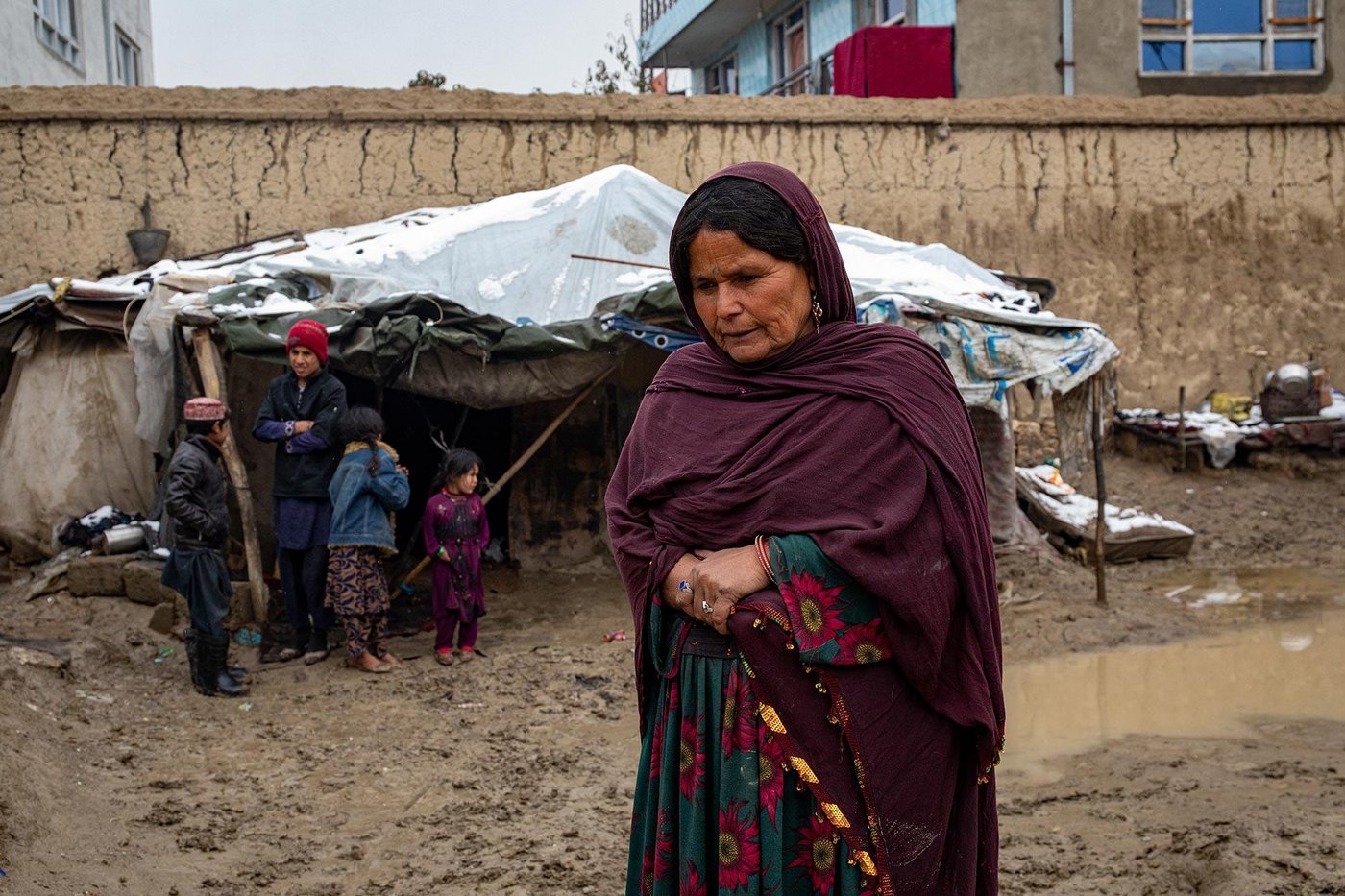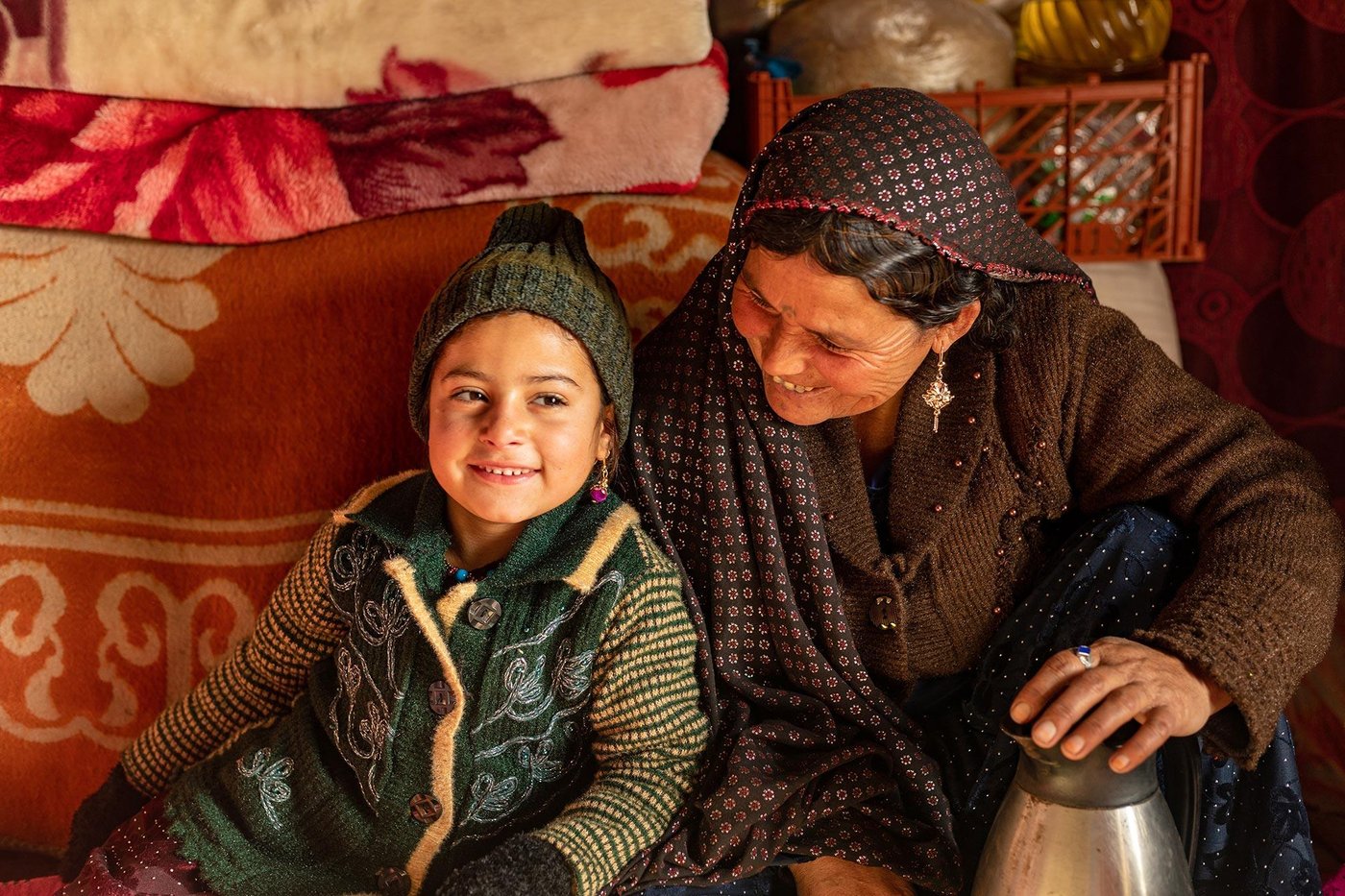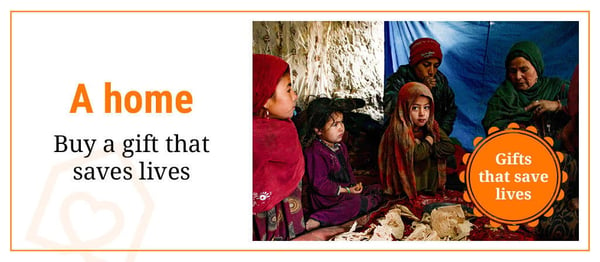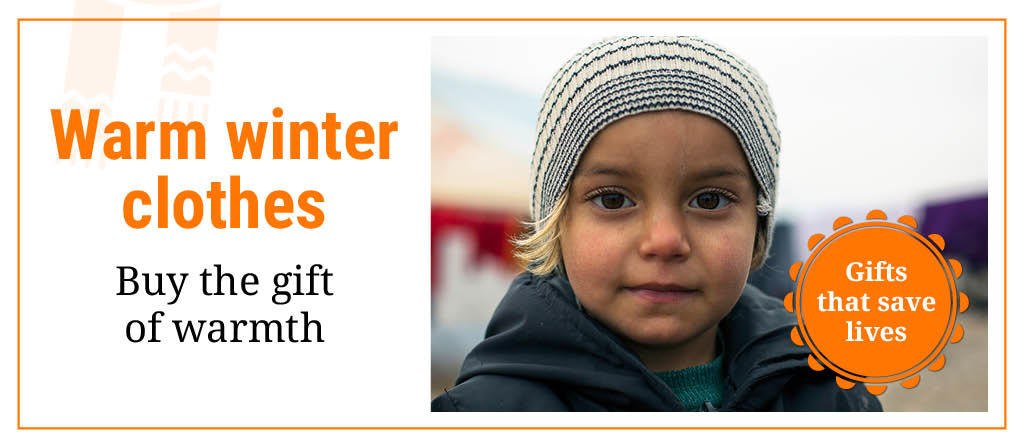
Now, 1,500 of the most vulnerable displaced families who have sought refuge in the city of Kabul are receiving help before the winter cold sets in. Amina’s family is among them.
The situation was completely different when we visited Amina and her family in November.
“It’s very cold, but we don’t have money to buy warm clothes. And our home doesn’t have any doors or windows,” Amina told us at the time.

Her home consisted of a simple plastic tarpaulin for a roof, some blankets for walls and a plastic mat that covered the earthen floor. This is how she lived half of her short life. Amina and her siblings also lacked shoes and warm clothes.
The family had a single light bulb as their only light source. It was connected to the neighbour’s power supply and Gulla paid for the use. When it rained, water would seep into the tent, and the cold and snow would make it impossible to keep warm. The winter in Afghanistan can be bitterly cold.

A new home
Now, Gulla, 45, and her five children, along with 1,500 other vulnerable families, have received help to build a simple house with windows and a door. They have also got help to buy heaters, fuel and winter clothes.
Families who have sought refuge in big cities are often called the “forgotten refugees”. More than half of the world’s displaced people live in urban areas, where they seek protection and where it is easier to find paid work. In Afghanistan, more than 1.2 million displaced people live in such settlements.

“Now we can manage”
“NRC has changed our lives. Now we can manage,” says Gulla
The new house has carpets on the floors, and Gulla has bought warm duvets, shoes and winter clothes for both herself and her children. She also bought fuel and installed a heater.
Before, my sister and I had to share one jacket. Now, we all have our own, and we no longer have to argue about who gets to wear the jacket.Fatima, 9
“Now, we can keep warm, and I have bought firewood for the winter. Finally, we can settle down in a new home, and we have what we need,” says Gulla.
She has one last wish: “I wish I could afford to send my children to school. My two eldest sons still have to go out into the city streets every morning to collect scrap metal, plastic and cardboard. They sell it so we can have money for food.”

“We had to share one jacket”
Fatima, 9, is Amina’s big sister. “Before, my sister and I had to share one jacket,” she says. “Now, we all have our own, and we no longer have to argue about who gets to wear the jacket. We also got new shoes and other clothes, and I even got a new dress.”
Fatima proudly shows off her new red dress. “It only cost 600 afghani [around USD 8], and I’m so happy. Our new home is cosy and warm. We have enough clothes, and we have enough blankets to stay warm through the night.”
Mobile teams
“We have mobile teams working in these settlements. Just as we do in established camps, we work to protect and help particularly vulnerable families. The heads of these families are often widows and are responsible for many children,” says Astrid Sletten, who leads NRC’s work in Afghanistan.
Read more about how we save lives and provide displaced families with a place to call home
Many of these children were born to a life of displacement and have never had a proper home. Parents can’t afford to send their children to school, and the children grow up without learning to read and write.Astrid Sletten, NRC
She tells of children who are malnourished, who lack warm clothes and who run around barefoot – even in winter. Children as young as ten work to collect plastic, paper and scrap metal that they sell so their family can have money for food.
“Many of the children were born to a life of displacement and have never had a proper home. Parents can’t afford to send their children to school, and the children grow up without learning to read and write,” says Sletten.

“We see that it makes a difference”
But Sletten, who has devoted many years to helping Afghan families, refuses to give up.
“We see that it makes a difference. It warms my heart every time we provide a family with a new home or when I see that another boy or girl can start school. Last year, we managed to help over 600,000 Afghans – equivalent to the entire population of Oslo.
“But we would never have been able to do it without the support of our sponsors and generous donors,” she emphasises.
Last year, we made sure that more than 77,000 displaced people in Afghanistan received help to get a roof over their heads.





